
The Preliminary results in Georgia’s parliamentary election suggest Georgian Dream could be on course to win a third term in Government, unprecedented in the country’s post-independence period.
With results counted from 69% of polling stations at 10:00, Georgian Dream lead with 49% of the vote. The UNM are second with 26% and European Georgia trailing in third with 4%.
The results show Georgian Dream candidates winning outright in 16 of the 30 majoritarian districts. The remaining 14 will go to a second round on 21 November.
The preliminary results would give nine parties seats in parliament, far more diverse than the previous convocation.
Georgian Dream are attempting to form a third government, unprecedented in the country’s post-independence period. Changes to the electoral system passed in June had bolstered opposition hopes of denying Georgian Dream the 76 out of 150 seats needed to form a government.
The changes drastically reduced the number of seats elected through the majoritarian component of the system, which has traditionally benefited the party in power. They also introduced a 40.5% vote share requirement for any party to form a government alone.
Both Georgian Dream and the UNM met the closing of the polls, accompanied by early exit polls, with celebrations.
Georgian Dream chair Bidzina Ivanishvili congratulated supporters minutes after the first exit poll results came in at 20:00
‘Official results have not been announced yet. However, we already know that today the citizens of Georgia have won’, Prime Minister Giorgi Gakharia wrote on his Facebook page.
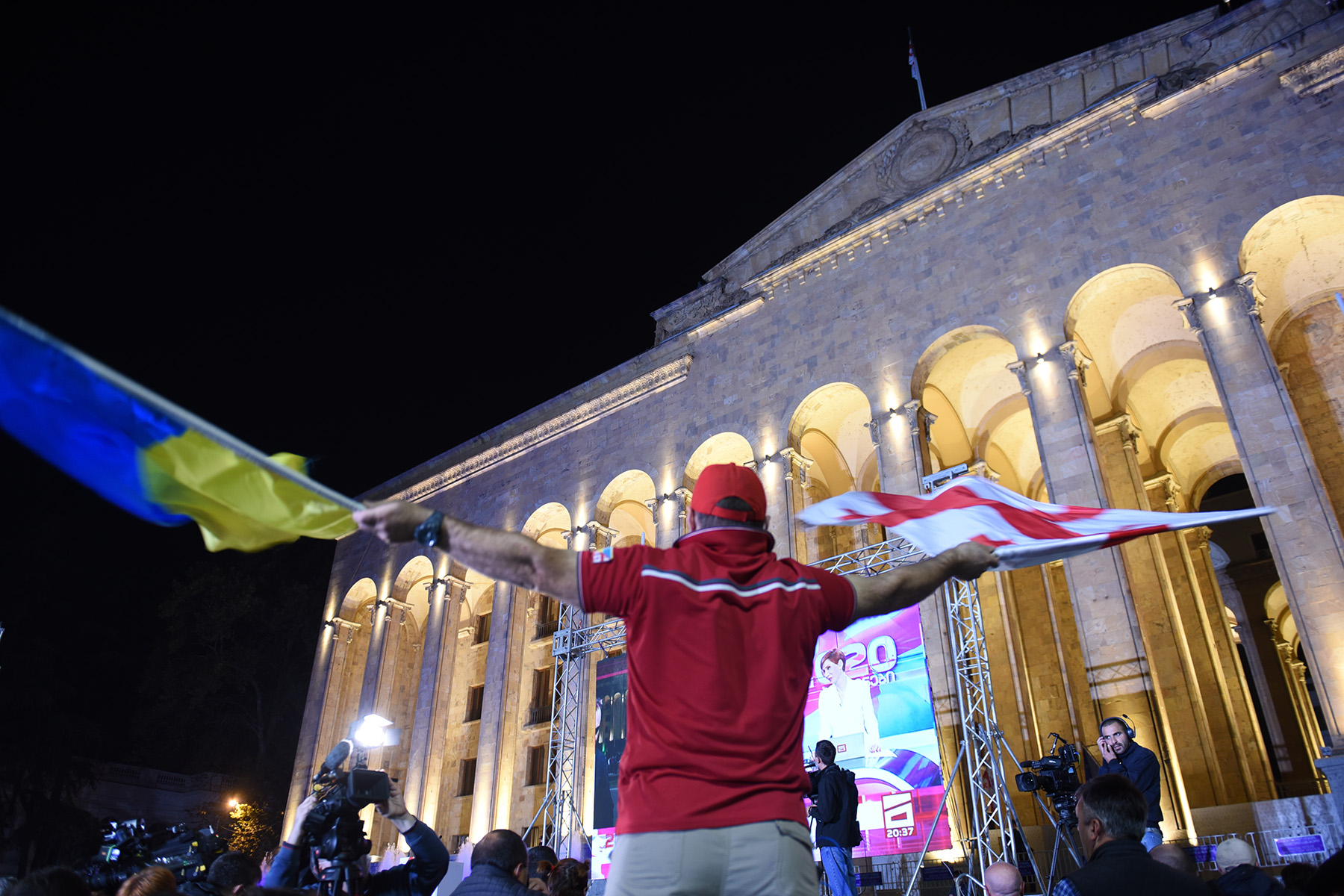
Lelo, a newcomer to politics which according to preliminary polls have passed the 1% threshold to enter parliament, called on supporters to closely monitor the vote count to prevent ‘rigging’.
‘Let’s avoid both celebrations and mournings‘, Davit Usupashvili, placed third in Lelo’s party list, told journalists, adding that more data was needed to have a clear picture.
Giorgi Vashadze, the prime-ministerial candidate from the coalition bloc Strategy Aghmashenebeli who garnered 3% or less in preliminary exit polls, called the numbers ‘inadequate’ and also called for people to ‘defend the vote’.
Election watchdog ISFED identified violations of voter secrecy as among the biggest problems during the vote. ISFED reported cases of voters coming out of cabins with unfolded ballot papers visible to others inside polling stations.
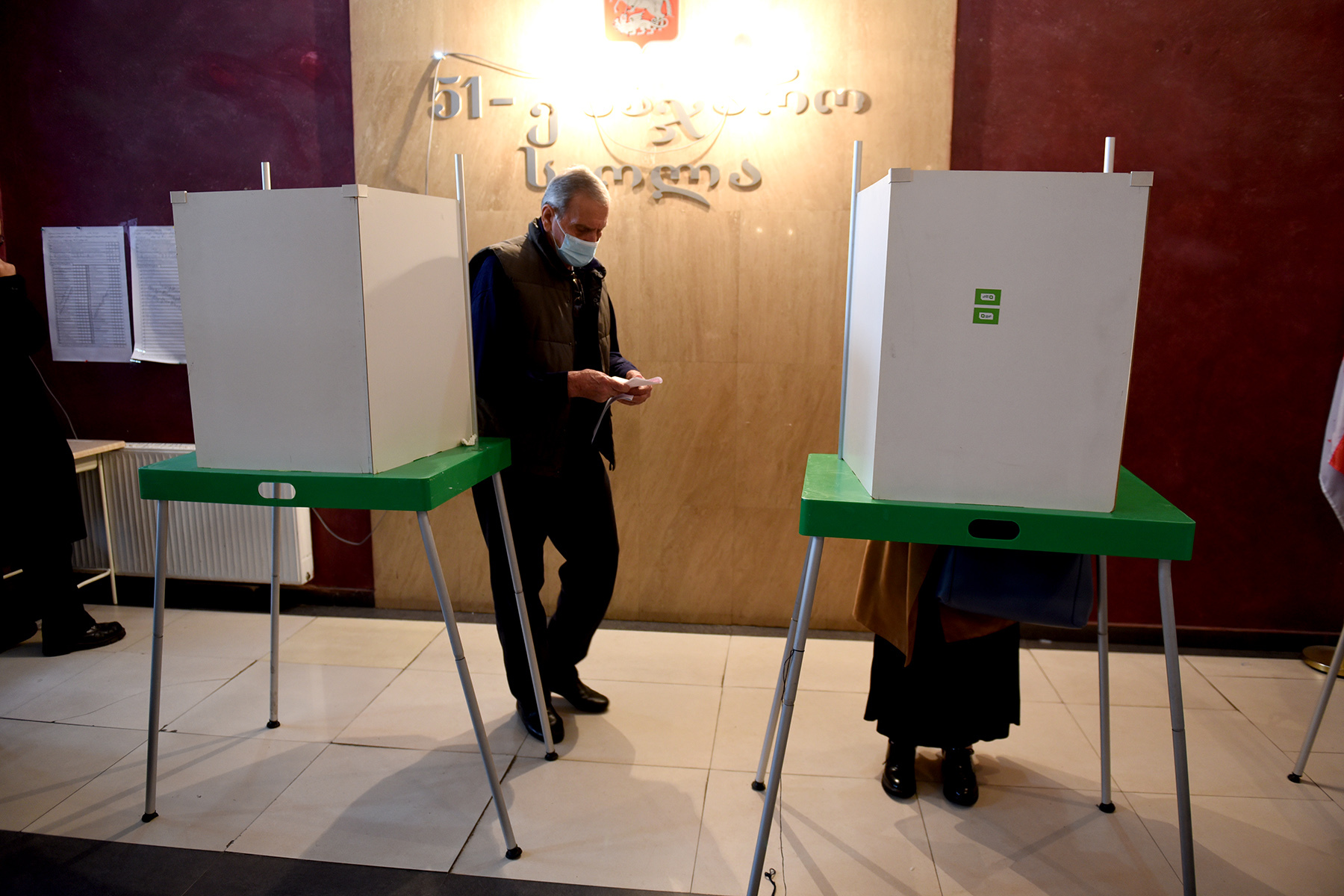
ISFED also said that the presence of party activists keeping a record of party supporters showing up to vote outside the polling stations, though not illegal, persisted as a problem.
At one point during the day a brawl broke out between supporters of Georgian Dream and the opposition UNM in Tbilisi’s Gldani District.
Two journalists were reportedly injured and police said they arrested five individuals.
Gldani was among the most hotly contested seats, with leading UNM member Nika Melia running against Levan Kobiashvili for Georgian Dream.
Online outlet On.ge also reported that their journalist was prevented from doing her work while enquiring about a man who was allegedly armed at a polling station in Marneuli Municipality.
The Media Advocacy Coalition called on police to investigate the incidents without delay and to ensure media workers’ safety.
An election amid a pandemic
The election was held as Georgia has seen a sharp rise in the number of confirmed cases of COVID-19, reaching almost 2,000 new cases per day. The National Centre for Disease Control (NCDC) have anticipated that COVID-19 numbers will peak in the second half of November.
Georgian PM Giorgi Gakharia claimed throughout the election campaign that polling stations would be ‘safer than supermarkets’, with several safety measures being implemented.
[Read more: ‘Safer than supermarkets’: as COVID-19 surges, Georgians brace for parliamentary vote]
On the day there was a somewhat confused implementation of anti-coronavirus measures at several polling stations.
According to the rules, voters were required to remove their face masks twice to be identified, upon entering the polling station and again when registering. The measure was not consistently enforced with reports of voters not being asked to do so or being identified only once.
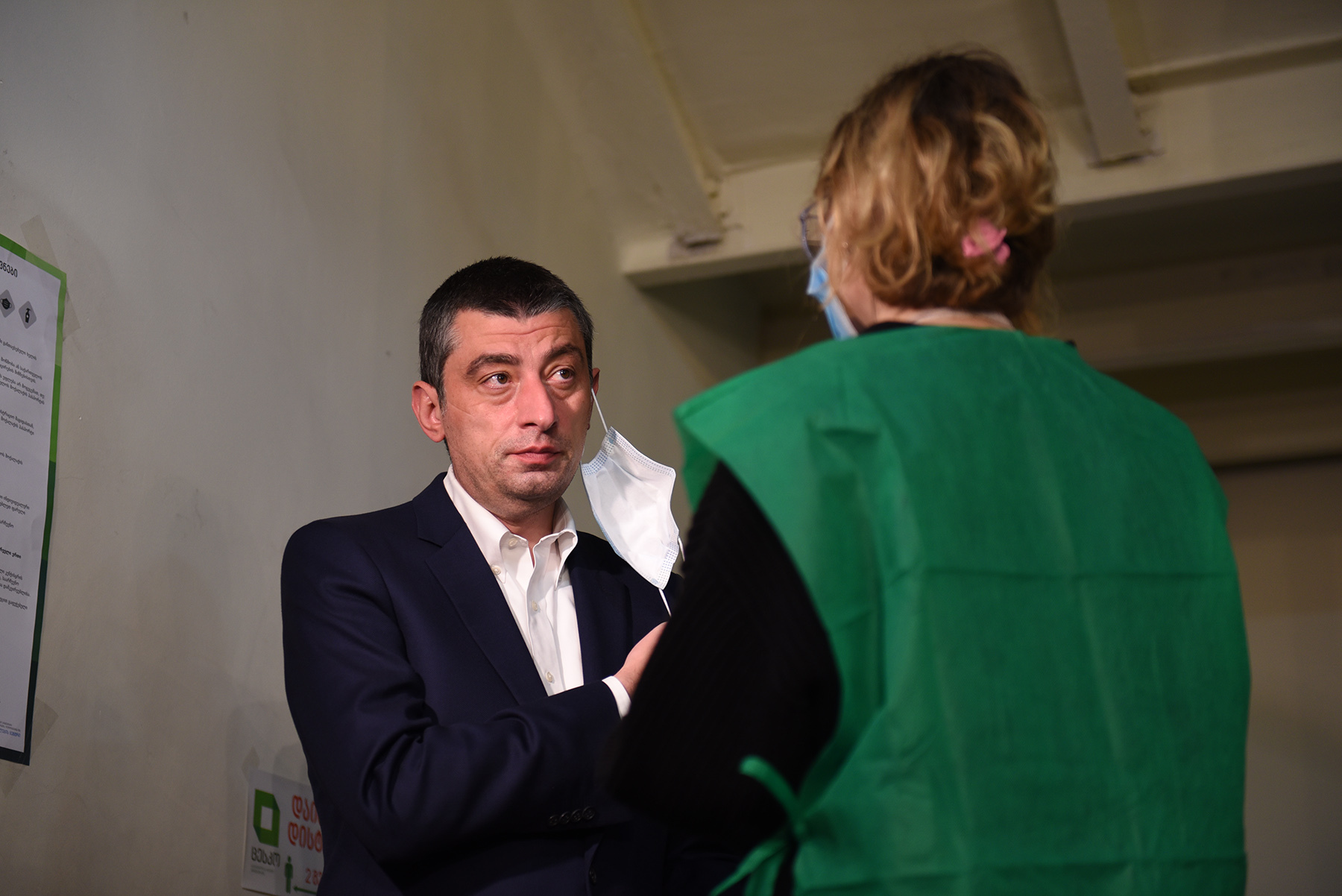
Soical distancing was also mixed, with some polling stations more effective than others.
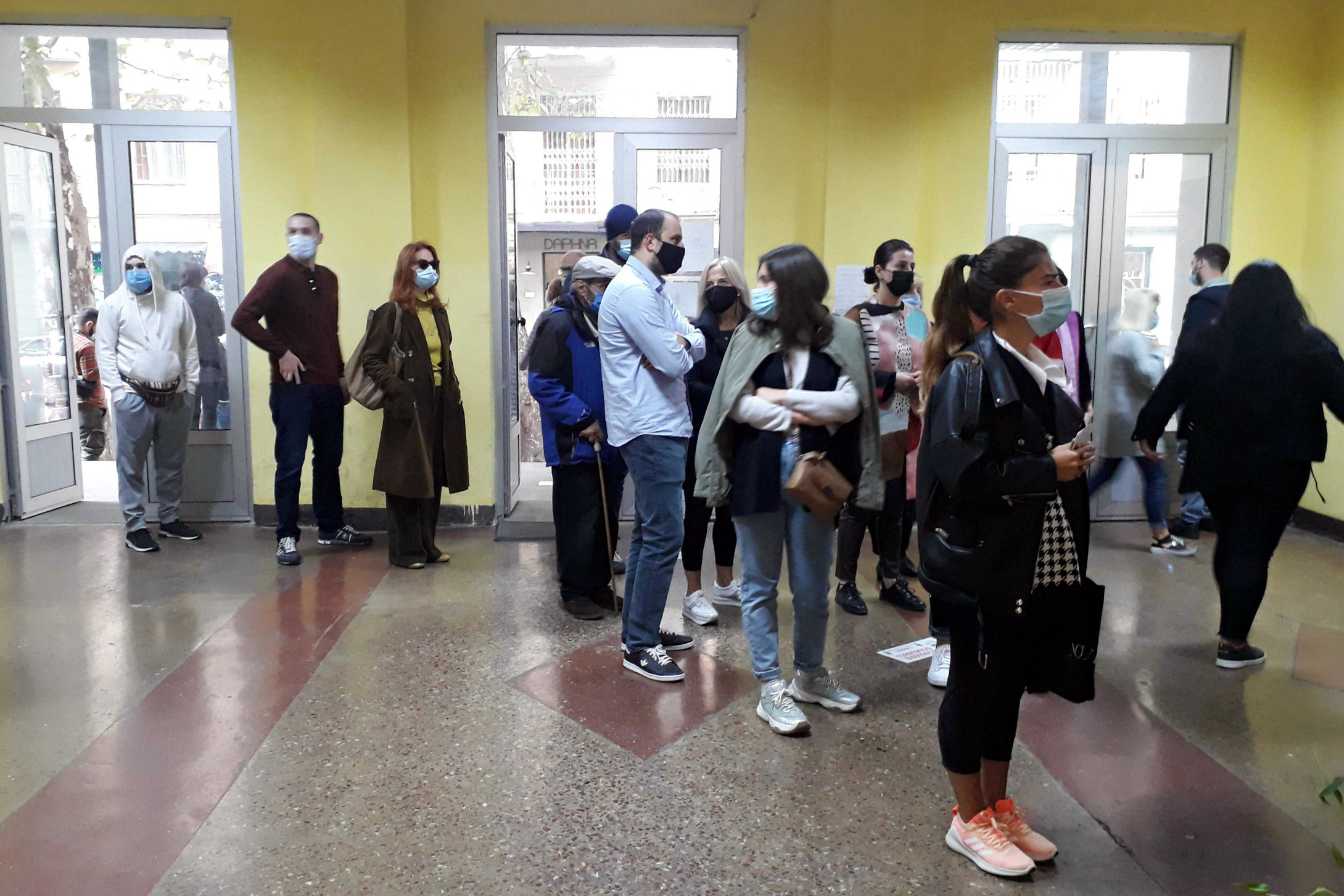
The authorities had said that thermal screening would not be required for voters before entering a polling station, but some local electoral commissions did so. This included a polling station in the #170 school in Tbilis’s Vake District where voters were screened before entering.
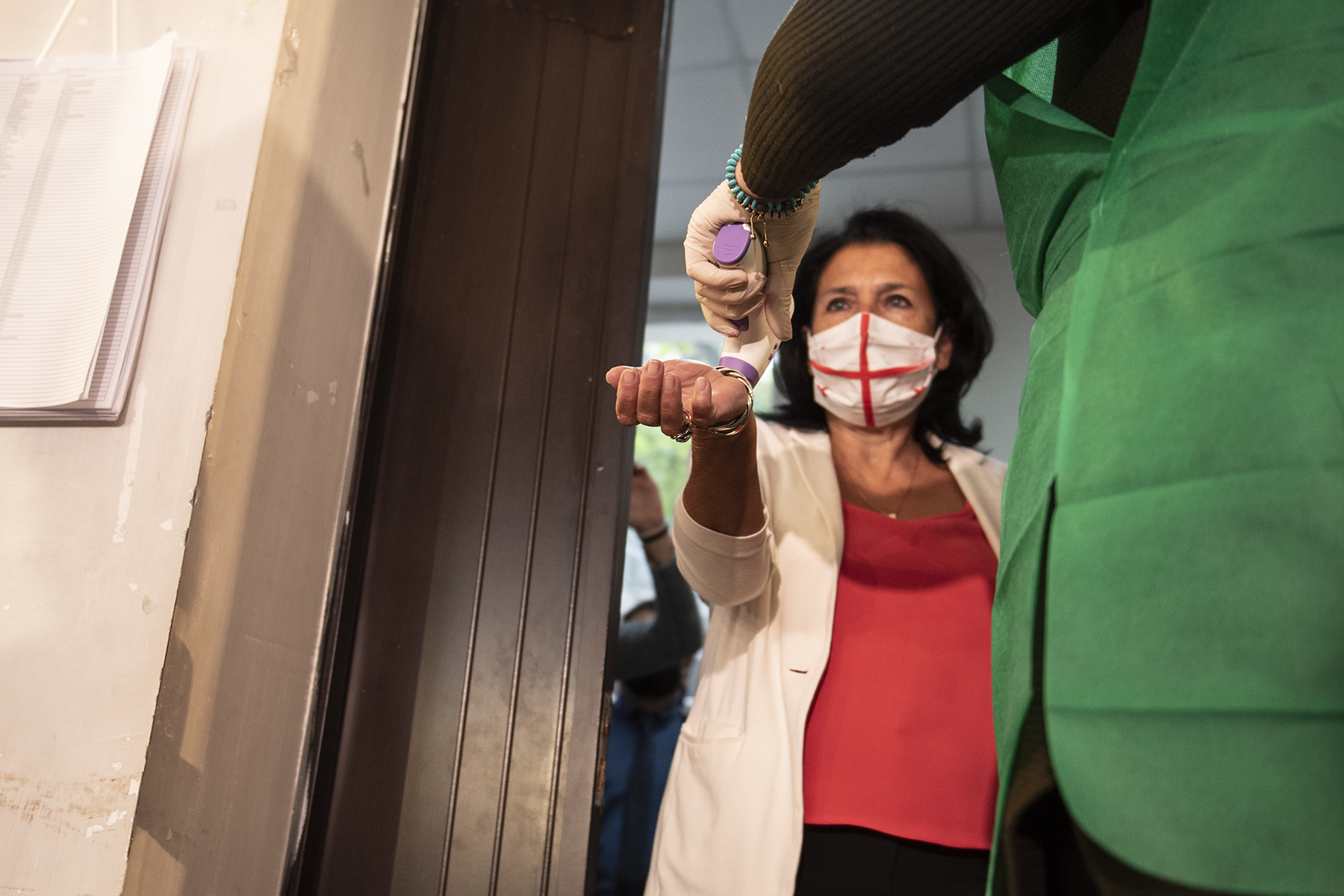
In another polling station in Mtatsminda, a member of the electoral commission was reprimanded by another for attempting to screen voters, with the measure reportedly reserved for staff and observers.
It is unclear if any voters with high temperatures were turned away.









